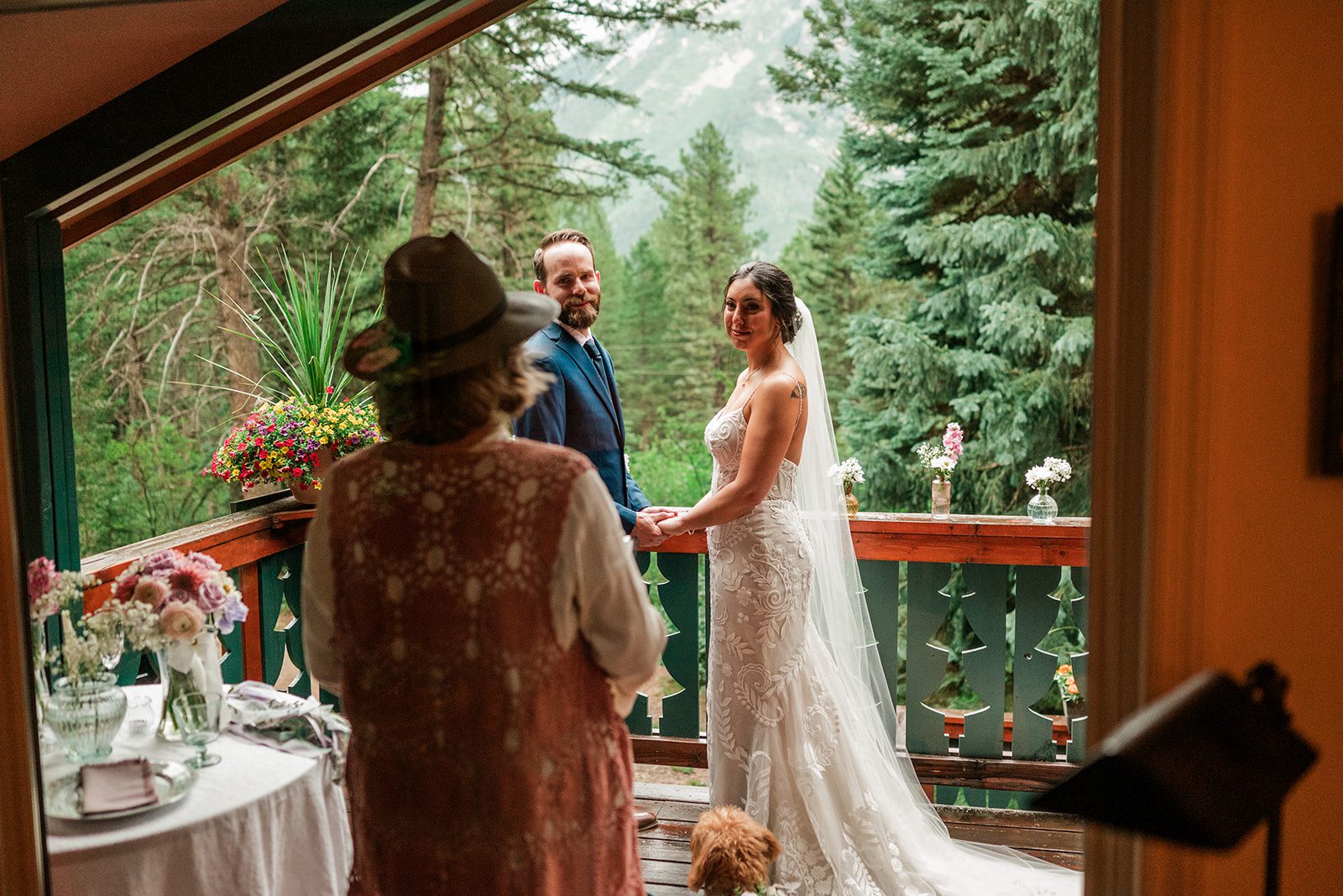Dreaming of an intimate, adventurous elopement in Colorado? You’re not alone—this state is a haven for couples who want a wedding day that’s as unique as their love story. But here’s something many don’t know: Colorado offers a beautiful secret when it comes to who can officiate your elopement. If you’re considering saying “I do” in the mountains, canyons, or wildflower meadows of Colorado, let’s dive into everything you need to know about who can (and can’t) make your marriage official—and why you might not need an officiant at all.
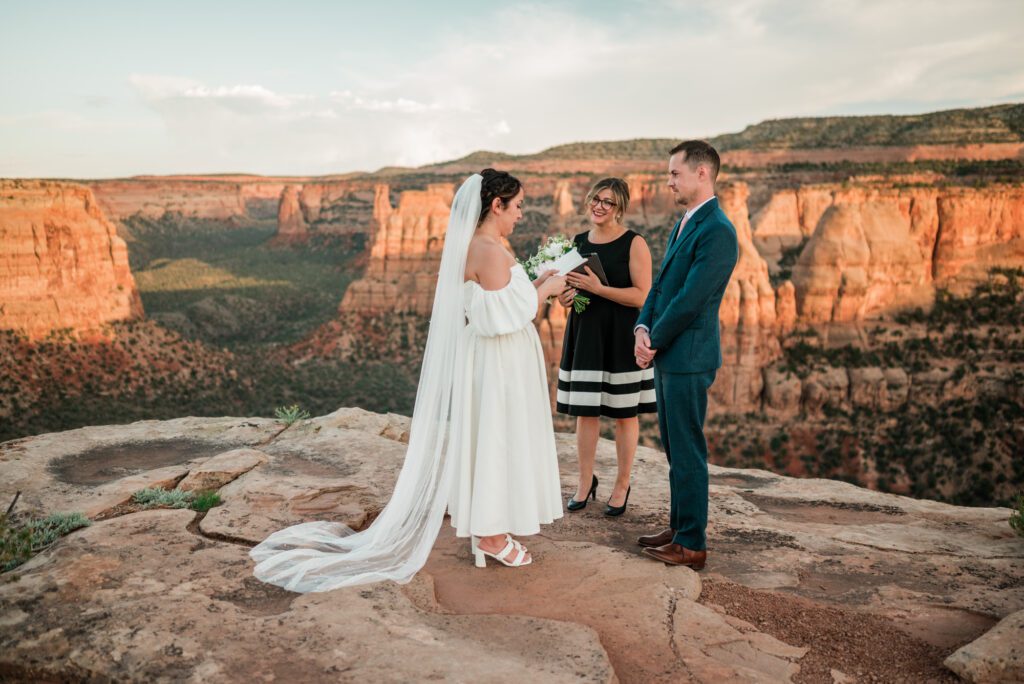
The Beautiful Secret—Who Can Officiate Your Colorado Elopement
Colorado is one of the very few states that gives couples the freedom to make their wedding day truly their own. The biggest secret? You don’t actually need an officiant to get married here! While you can absolutely have a judge, minister, or even a friend officiate, Colorado law lets you self-solemnize—meaning you and your partner can marry yourselves, no witnesses or officiant required. This unique rule is a game-changer for non-traditional, adventurous couples who want a wedding that’s all about them.
Can You Marry Yourselves in Colorado? (Explaining Self-Solemnization)
So, what is self-solemnization? In plain words, it means you and your partner can legally marry each other without anyone else being involved. You don’t need an officiant, a witness, or even a big ceremony. Just the two of you, your vows, and a marriage license. This makes Colorado one of the most flexible and empowering places to elope, especially for couples who want privacy, intimacy, and total control over their wedding day.
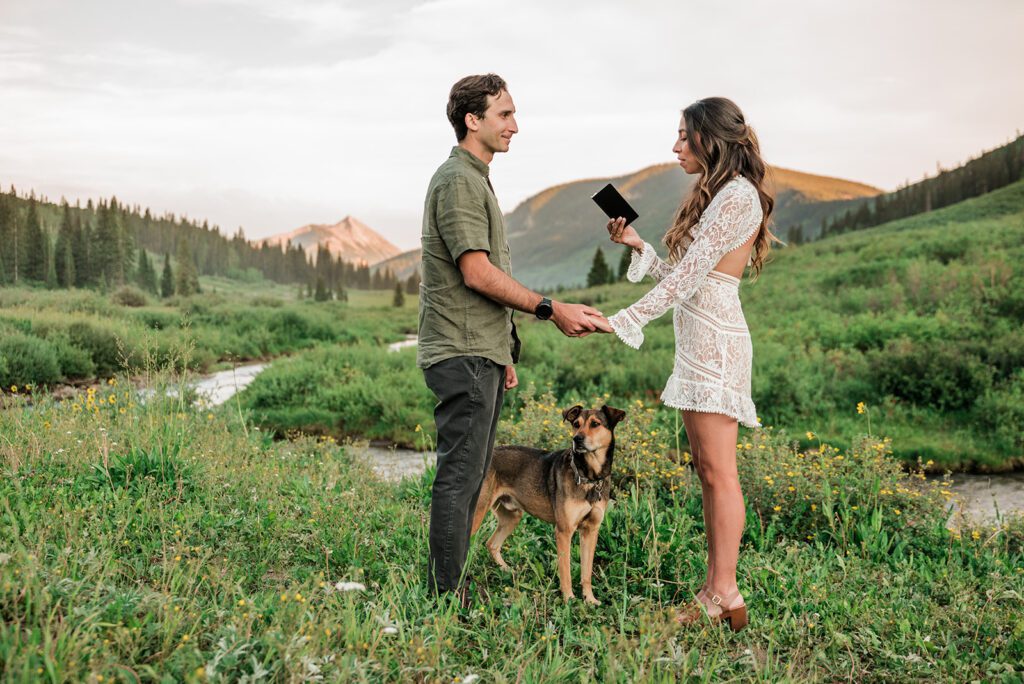
Who CAN Officiate a Wedding in Colorado?
If you do want someone to officiate, Colorado gives you plenty of options:
– Licensed Officiants: Judges, magistrates, and ordained ministers (from any religion or denomination) are all able to legally marry you.
– Family or Friends: Thanks to online ordination, it’s easy for a loved one to become a legal officiant for your big day—often in just a few minutes!
– Or… No One at All: Remember, officiants are optional here! You can skip the formalities and make it just about you and your partner.
How Self-Solemnization Works (Step by Step)
Thinking of self-solemnizing your Colorado elopement? Here’s how it works:
1. Get Your Marriage License: Visit any Colorado county clerk’s office together. You’ll need valid IDs and the license fee (typically $30).
2. Fill Out the License: There’s a section on the license where you both sign as your own officiants.
3. Say Your Vows: Whether it’s on a mountaintop, beside an alpine lake, or in your favorite coffee shop, exchange your vows however and wherever you want.
4. Sign the License: No witnesses or officiant signatures required—just yours!
5. Return the License: Mail or deliver the signed license back to the county clerk’s office to make it official.
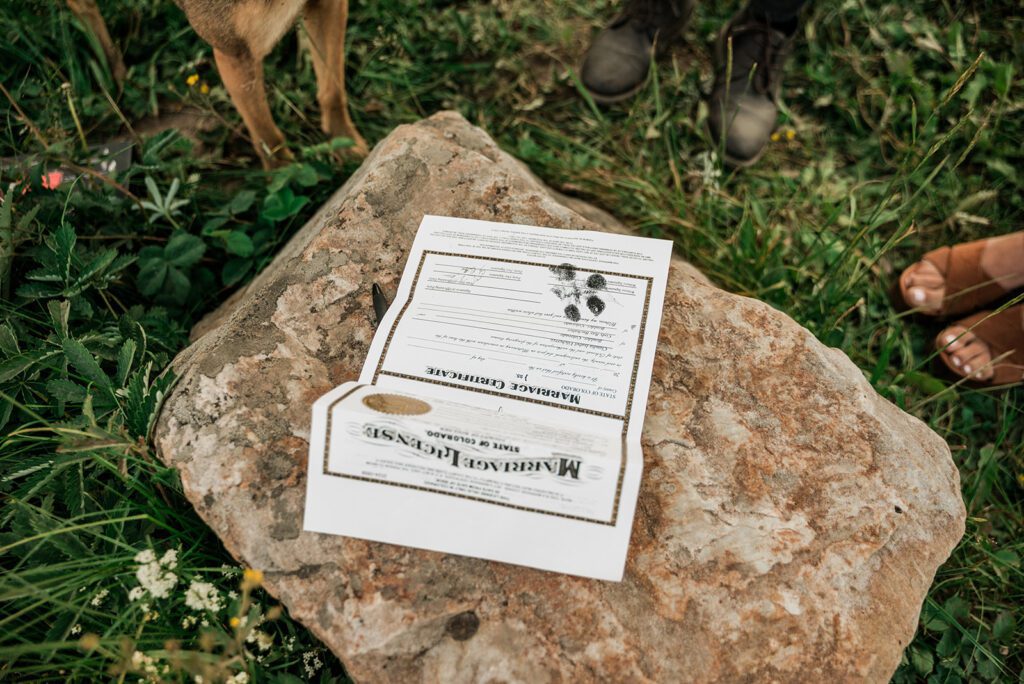
Why Couples Love Self-Solemnizing
Self-solemnization is more than just a legal loophole—it’s a way to make your wedding day deeply personal. The two of you are all you need to make your marriage and wedding official. What’s most intimate and personal than that? Here’s a few reasons why so many couples are drawn to it:
– Privacy & Intimacy: With no officiant or witnesses, your ceremony can be as private and meaningful as you want.
– Ultimate Flexibility: You’re not tied to anyone’s schedule or a venue. Say your vows at sunrise, sunset, or in the middle of a wildflower field.
– Empowerment: You literally hold your marriage in your own hands. There’s something incredibly powerful about declaring your commitment to each other, just the two of you.
– Dogs: In (most counties of) Colorado, your dog can sign as a witness to your marriage! There’s nothing cuter than your lil fur baby helping you start this next adventure.
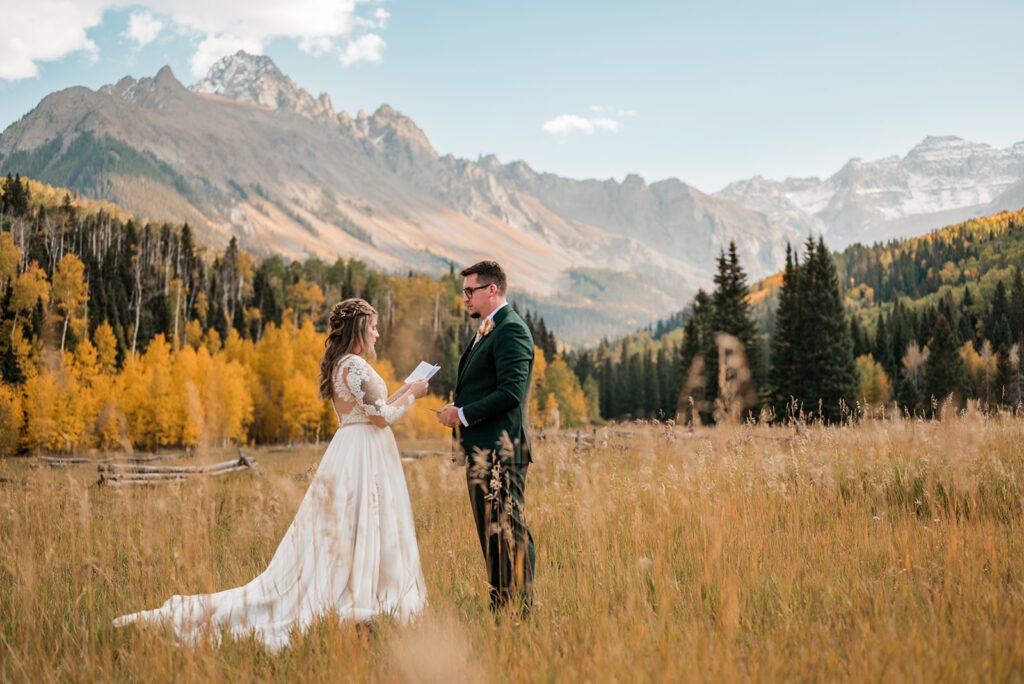
Things to Know Before You Self-Solemnize
While self-solemnizing is simple, there are a few important details to keep in mind:
– Legal in Colorado: Your marriage will be recognized everywhere, but the process of self-solemnization is specific to Colorado (and a few other states).
– No Witnesses Needed: You can have guests if you want, but they’re not required.
– Name Changes: If you’re planning to change your name, make sure you sign your marriage license with your new name and bring the proper documentation.
– Pets Can “Sign” Too: Fun fact—many couples have their dogs “sign” the license with a paw print!
Real Elopement Inspiration—What It Looks Like to Self-Solemnize
Picture this: You and your partner hiking to a secluded overlook at sunrise, reading handwritten vows as the first light hits the peaks. Or maybe you’re exchanging rings in a wildflower meadow, just the two of you, surrounded by nature’s beauty. Self-solemnization lets you craft a day that’s authentic, adventurous, and totally you—no scripts, no pressure, just real moments. I’ve had the honor of capturing so many self-solemnized elopements, and each one is as unique as the couple themselves.

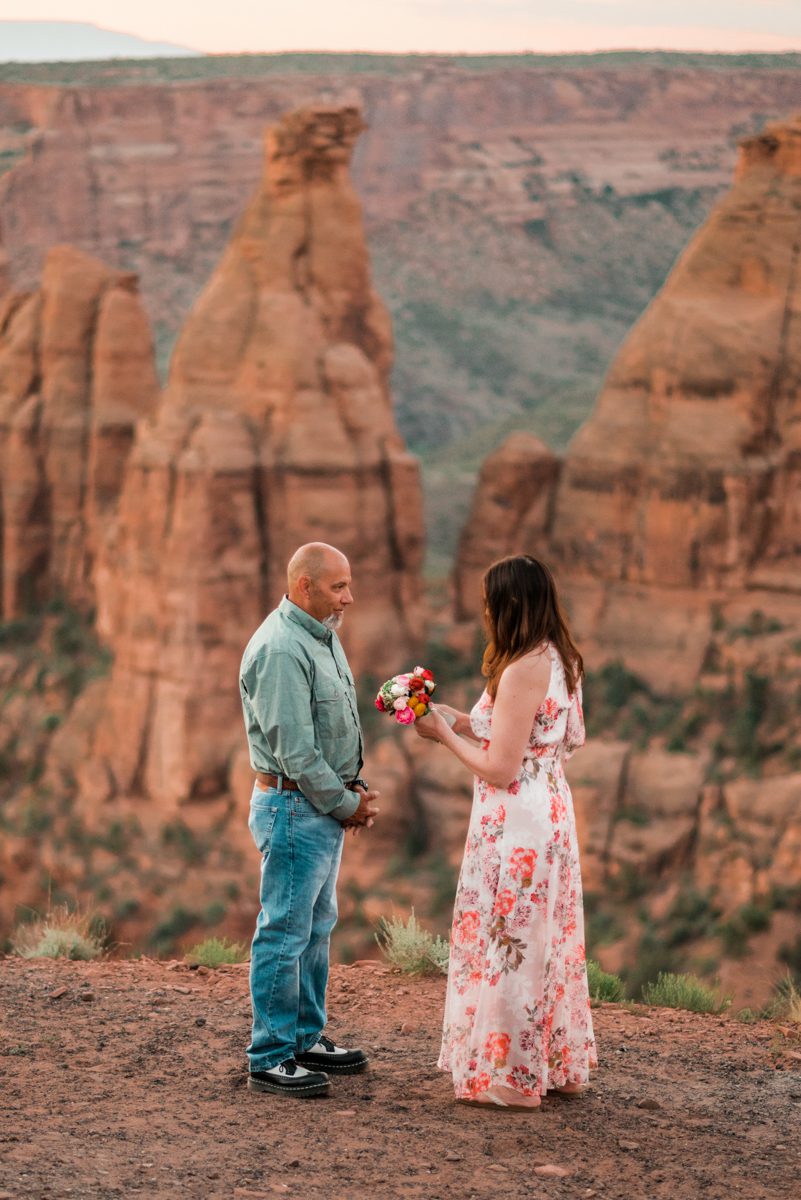
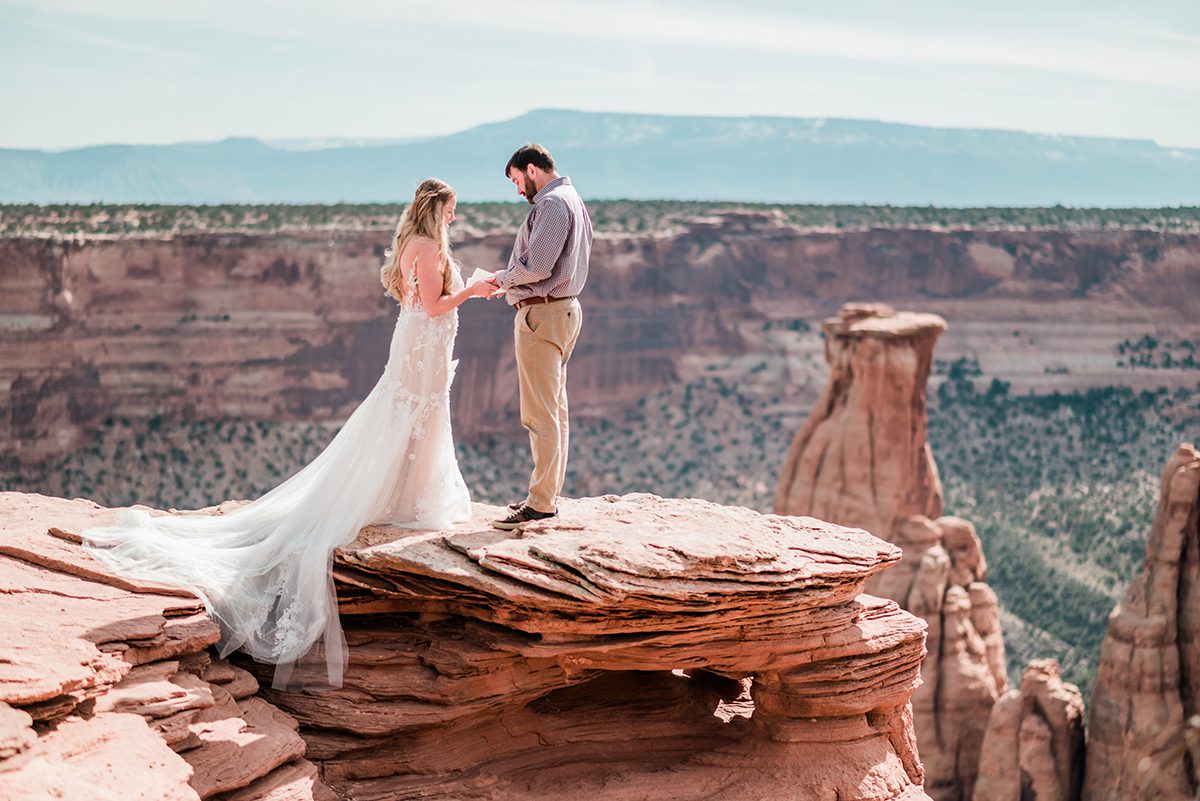
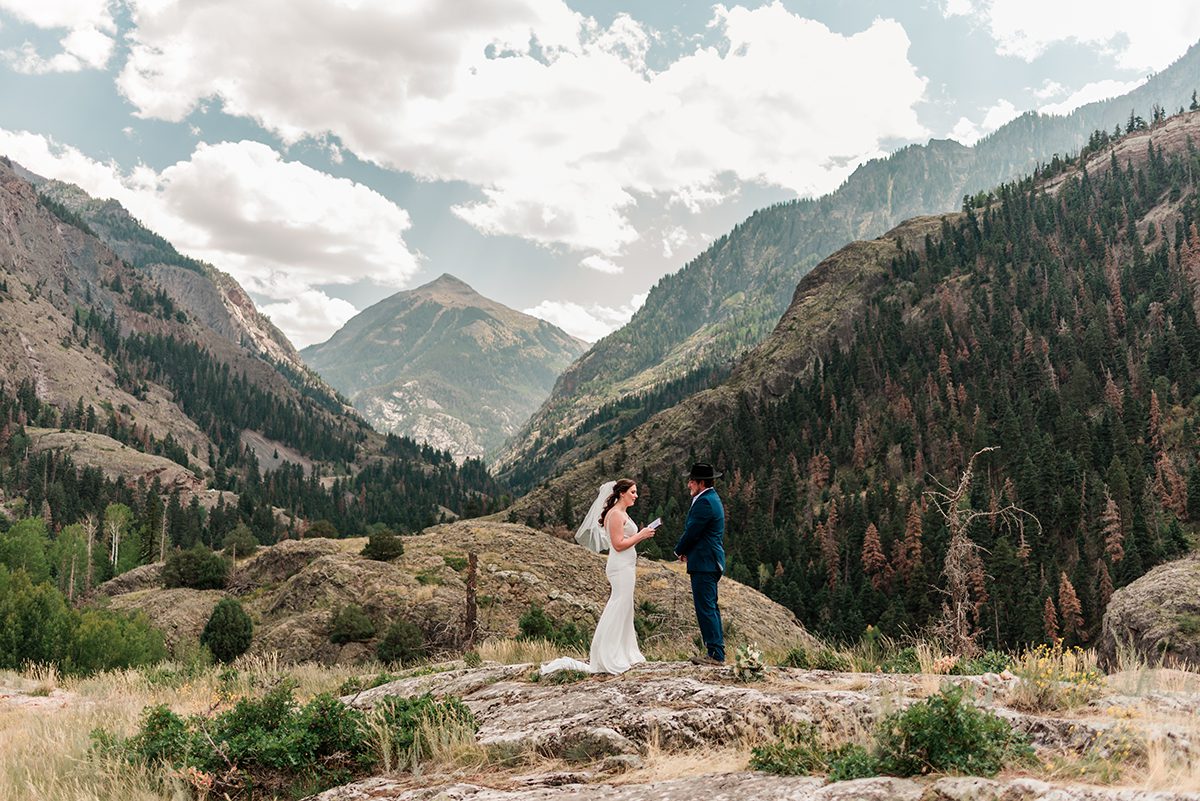
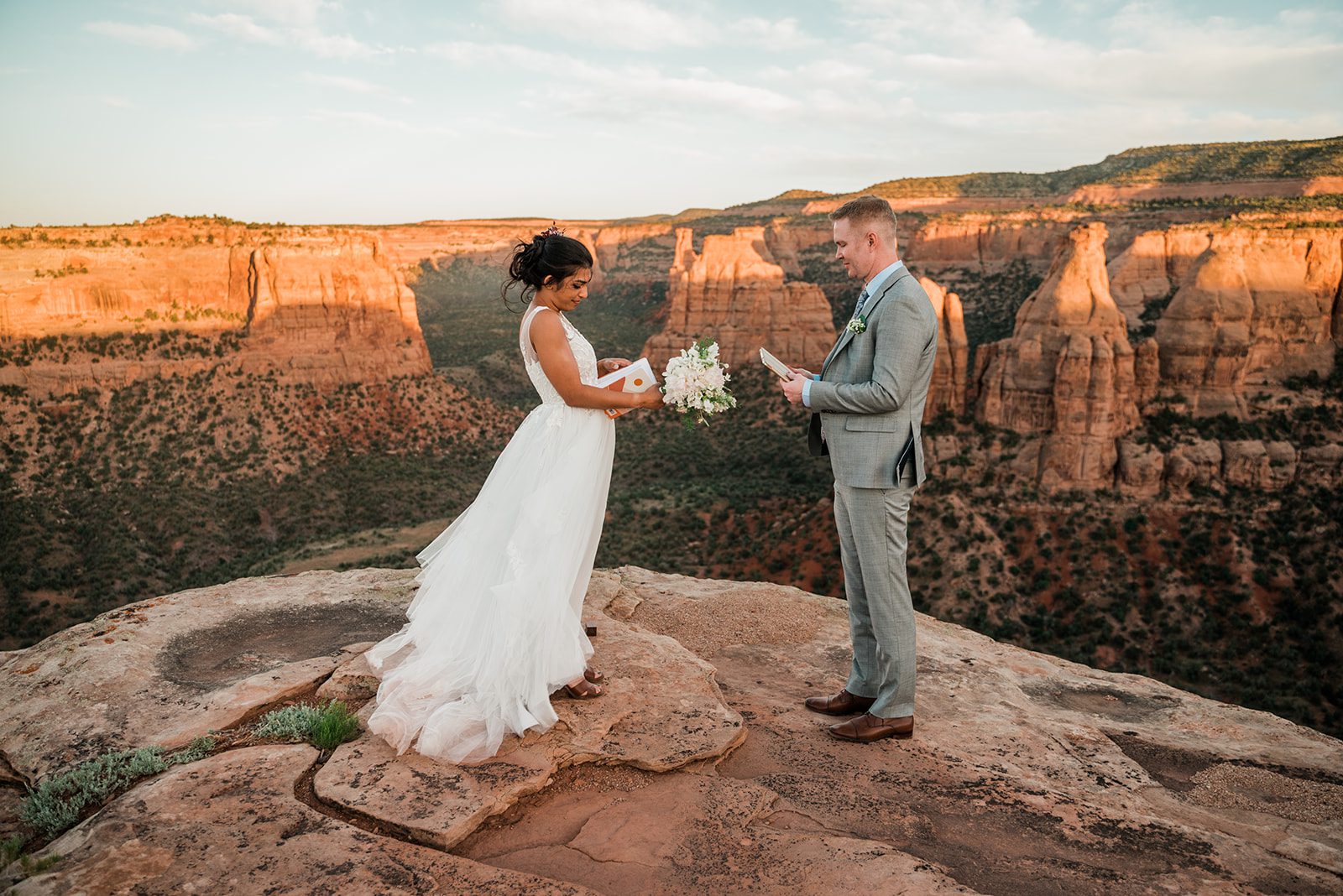
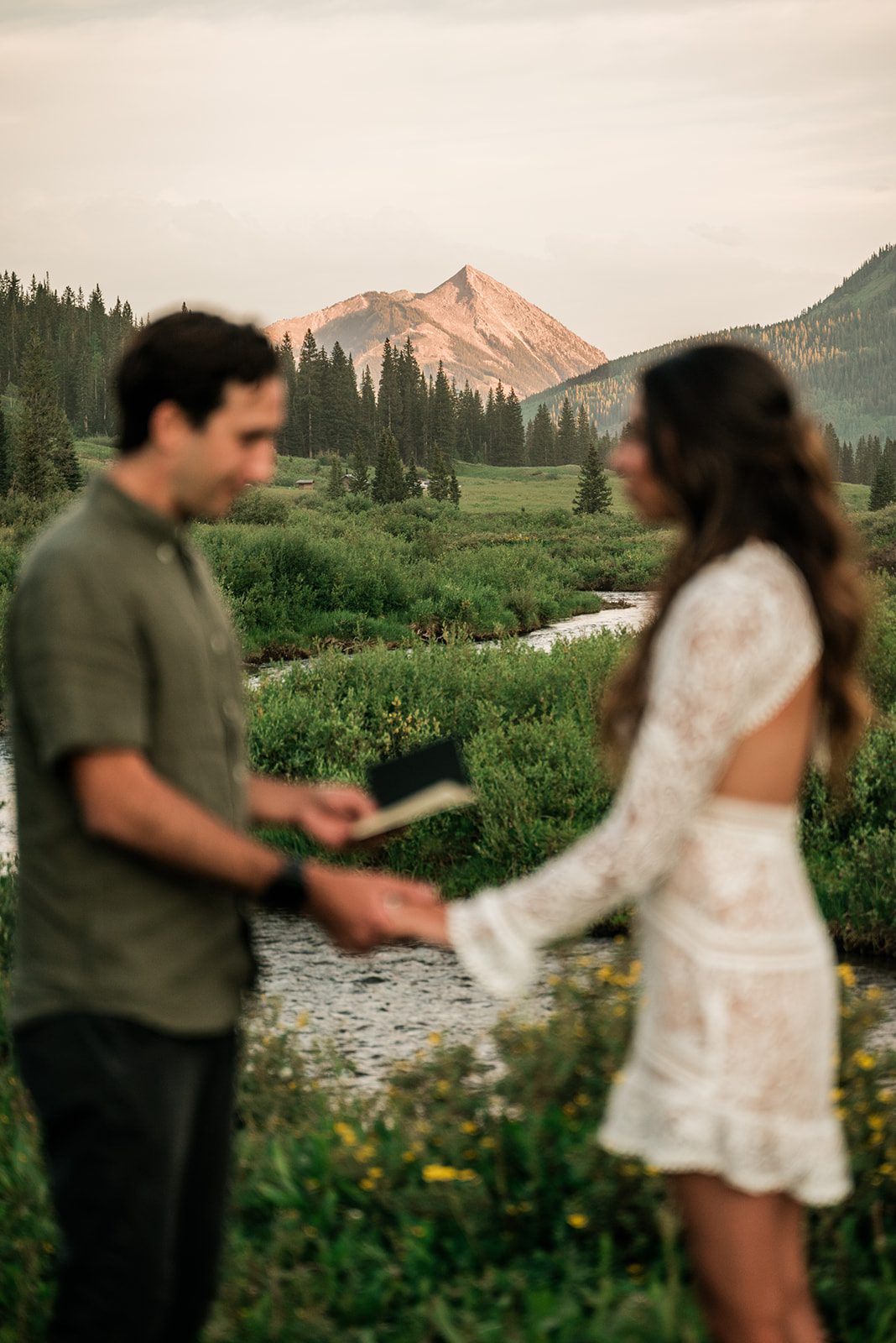
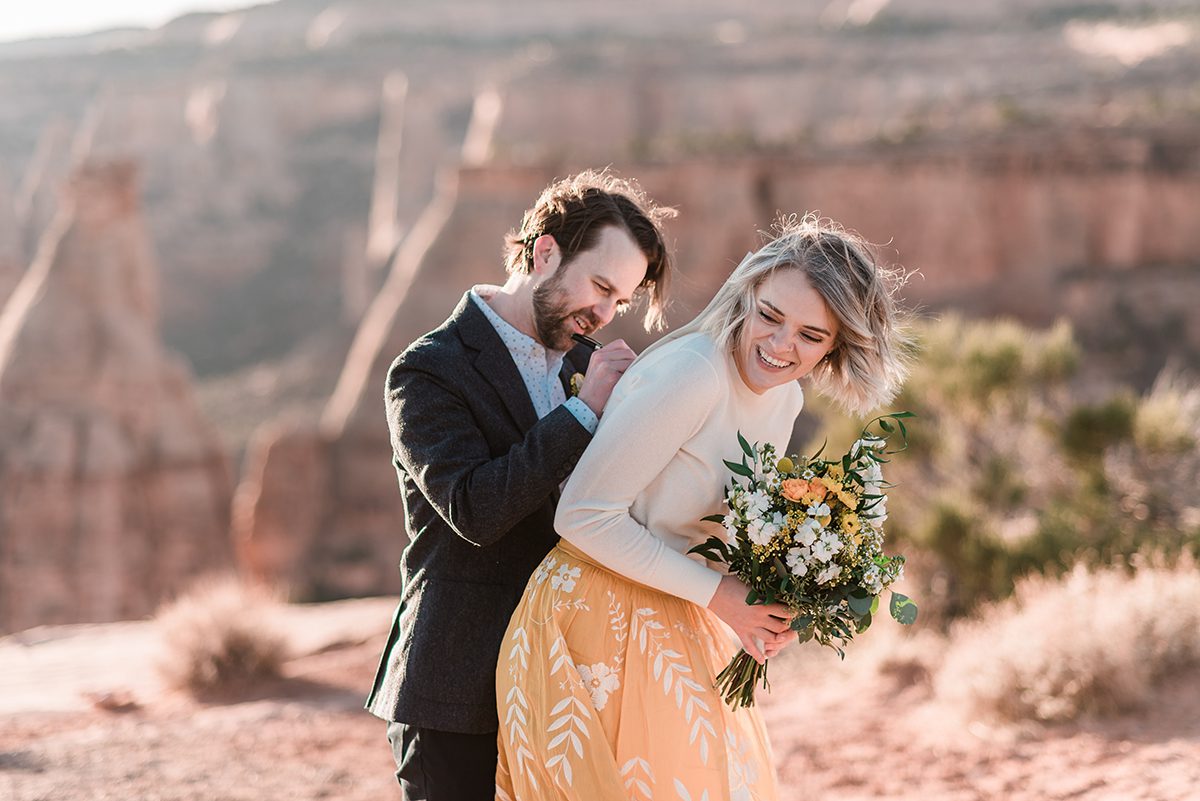
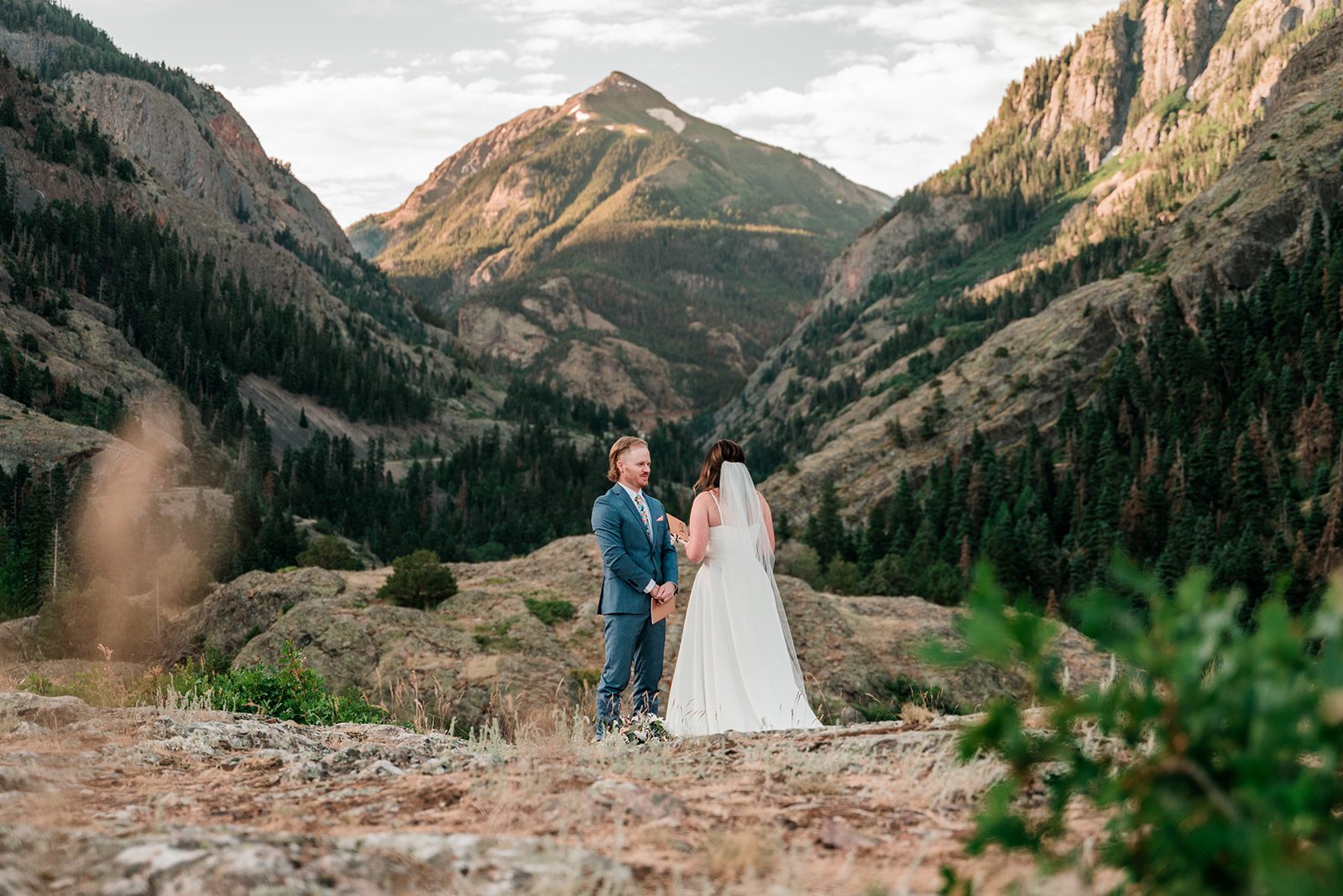
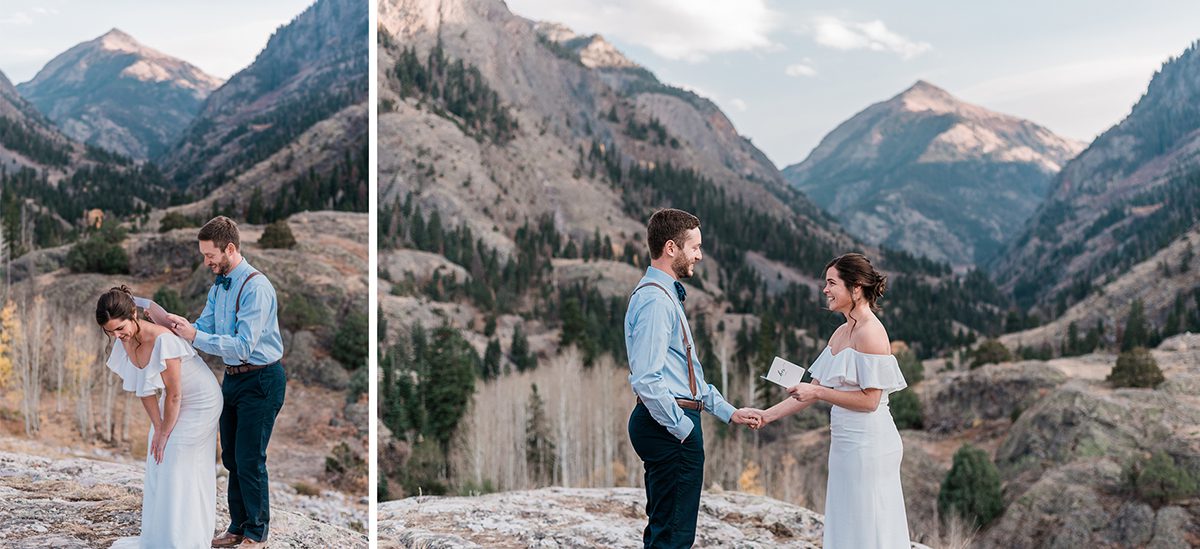
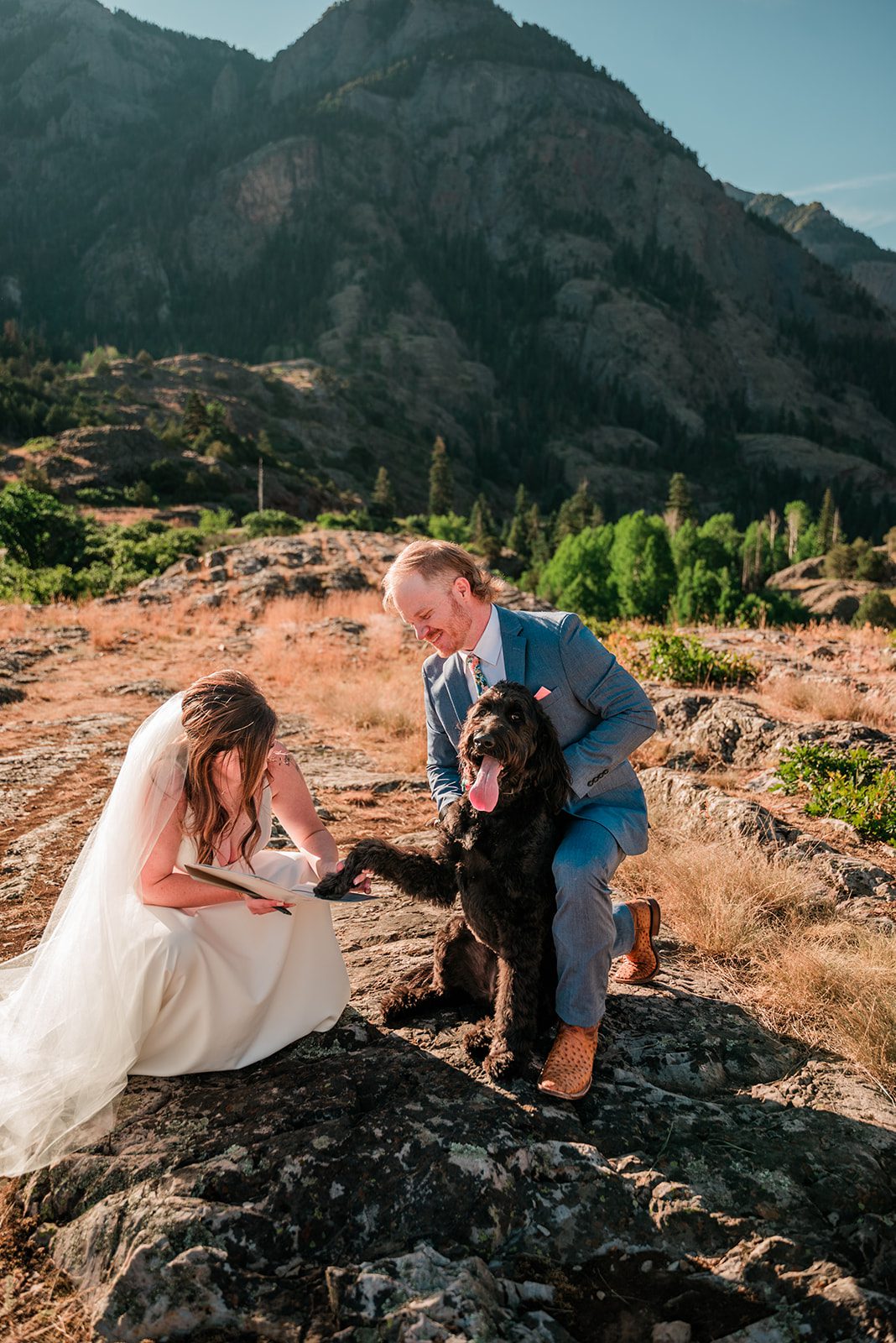
Do You Still Need a Photographer or Planner?
If you’re self-solemnizing, you might wonder if you need anyone else there. My answer? Absolutely! With no officiant or witnesses, having a photographer ensures these once-in-a-lifetime moments are preserved forever. I help couples with everything from location scouting and timeline planning to capturing every candid, joyful, tearful moment—so you can be fully present and soak in the day. Whether you want a quiet, private adventure or a stress-free, seamless experience, I’m here to support you every step of the way.
Eloping in Colorado is about freedom, adventure, and making your wedding day truly your own. Whether you choose to self-solemnize or invite a loved one to officiate, the most important thing is that your ceremony reflects your unique love story. If you’re ready to create memories in Colorado’s wild beauty—and have them captured for a lifetime—I’d be honored to help you bring your vision to life! Click here to set up a free consult.
